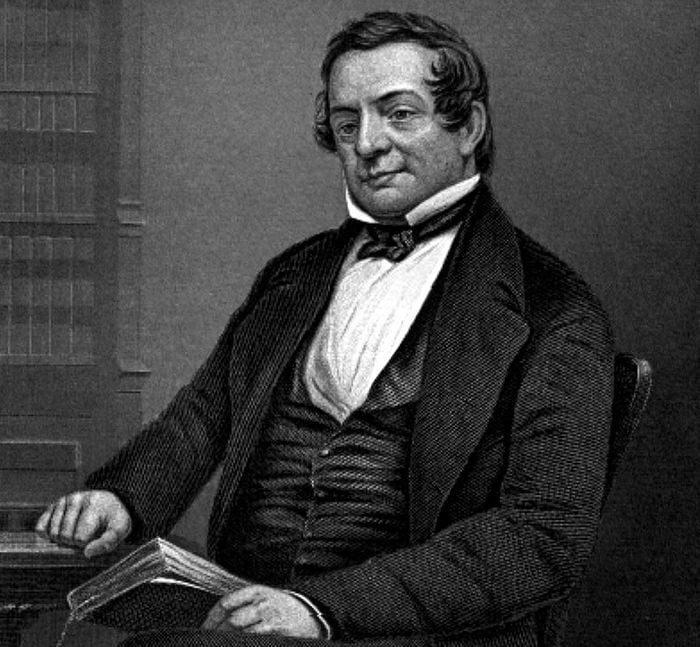Washington Irving (1783-1859)
Washington Irving was born in New York City in 1783, during the British occupation. He was in the diplomatic service for the greater part of his productive years, and wrote several of his books abroad. In many ways Irving is a product of the Eighteenth Century. Of his numerous historical works, biographies and travel sketches, several are still read with pleasure. His most famous collection of stories is The Sketch Book (1819), which contains Rip Van Winkle and the story that follows in these pages. The Specter Bridegroom is one of the earliest examples of the American short story.
The Specter Bridegroom
From The Sketch Book
“He that supper for is dight, He lyes full cold, I trow, this night!
Yestreen to chamber I him led, This night Gray-steel has made his bed!”
—Sir Eger, Sir Graham and Sir Gray-steel.
On the summit of one of the heights of the Odenwald, a wild and romantic tract of Upper Germany that lies not far from the confluence of the Main and the Rhine, there stood, many many years since,
I he Castle of the Baron Von Landshort. It is now quite fallen to decay, and almost buried among beech trees and dark firs; above which, however, its old watch-tower may still be seen struggling, like the former possessor I have mentioned, to carry a high head, and look down upon a neighboring country.
The Baron was a dry branch of the great family of Katzenellenbogen, and inherited the relics of the property and all the pride of his ancestors. Though the warlike disposition of his predecessors had much impaired the family possessions, yet the Baron still endeavored to keep up some show of former state.
The times were peaceable, and the German nobles, in general, had abandoned their inconvenient old castles, perched like eagle` nests among the mountains, and had built more convenient residences in the valleys; still the Baron remained proudly drawn up in his little fortress, cherishing with hereditary inveteracy all the old family feuds; so that he was on ill terms with some of his nearest neighbors, on account of disputes that had happened between their great-great-grandfathers.
The Baron had but one child, a daughter; but Nature, when she grants but one child, always compensates by making it a prodigy; and so it was with the daughter of the Baron. All the nurses, gossips, and country cousins, assured her father that she had not her equal for beauty in all Germany; and who should know better than they?
She had, moreover, been brought up with great care, under the superintendence of two maiden aunts, who had spent some years of their early life at one of the little German courts, and were skilled in all the bran-ches of knowledge necessary to the education of a fine lady. Under their instructions, she became a miracle of accomplishments. By the time she was eighteen she could embroider to admiration, and had worked whole histories of the saints in tapestry with such strength of expression in their countenances that they looked like so many souls in purgatory.
Read More about Miss Tempy` Watchers part 7








